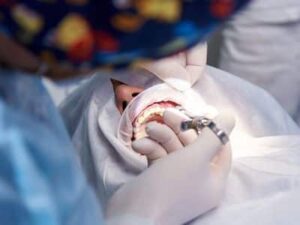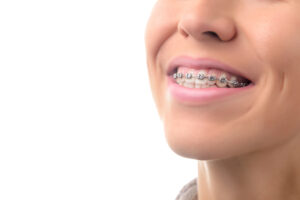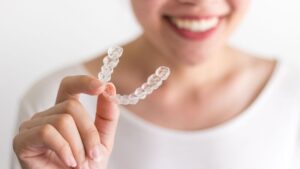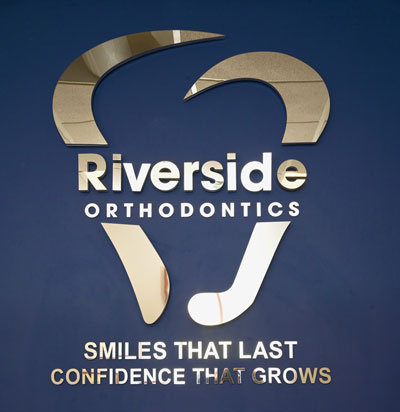How Soon Can I Eat After Jaw Surgery?
Whether you’re undergoing single or double jaw surgery in Riverside, it’s a huge procedure nonetheless. For that reason, it’s highly important to take note that everyone has a different pace of healing. Therefore, you need to listen to your body and assess whether or not you’re ready for the next stage of recovery.
For most kinds of jaw surgery, you will be instructed to have a diet consisting of liquid foods for the first two to four weeks. When we say liquid foods, we don’t mean soft foods, but foods like water, clear broths, protein drinks, and any type of drink that you can drink from a blender.
Once the following weeks have passed, then you’re going to enter the next stage which is the non-chew food. If you’re able to squish it easily between your fingers, then that’s a clear sign that it’s perfectly fine for you to eat. Crunch food will have to wait a bit more.
Here is a list of non-chew food examples that are safe to eat at this stage:
- Mashed potatoes
- Scrambled eggs
- Soft fish
- Soft pasta (Overboiled and cut into tiny portions)
You are most likely going to be instructed by your orthodontist to follow the non-chew diet for the following three weeks.
After three weeks of following the non-chew food diet, you can now transition to soft foods. Most orthodontists highly recommend you eat white rice, fish, bananas, avocados, mangoes, pureed fruits and vegetables, white bread, soft beans, cottage cheese, canned chicken, and meatloaf.
Throughout the two weeks, you can slowly introduce normal food and start chewing like before. It’s still advisable to cut the food into smaller pieces until you feel comfortable taking bigger bites.
Crunchy or hard food, as well as extremely chewy foods, must be avoided within the first three months after jaw surgery. Examples of foods to avoid are apples, popcorn, pizza, peanuts, and other kinds of nuts.
What to Eat After Jaw Surgery Treatment
Patients who have prepared enough for jaw surgery typically will experience a more successful and much faster recovery. Your dietary and nutrition needs after the surgery will depend on a lot of factors such as your health before and during the surgery, as well as the impact on your oral function and your expected recovery.
Following a liquid or soft foods, diet is usually required once the patient has undergone oral surgery. It’s crucial to pick foods that are packed with nutrients like vegetables, dairy, fruits, and protein. These foods are loaded with nutrients and vitamins that will help your jaw recover faster.
Below are the different procedures wherein your orthodontist may require you to follow a soft foods diet:
- Tooth extraction
- Root canal
- Orthognathic (jaw) survey
- Dental implants
Patients who undergo any of the types of procedures mentioned above will be required to stick to soft feet and avoid chewing or biting within a certain period of time. According to the American Association of Endodontists, they recommend for patients refrain from chewing or biting down after a root canal procedure until the tooth has been restored and there has been a crown placed on it.
Here is a list of the following examples of soft foods that can be eaten right after oral surgeries such as wisdom teeth removal or dental implant placement. Right after the treatment, your jaw and mouth can feel a little bit sore, so it’s important to focus on eating different kinds of foods that provide nutrients without the need for chewing.
- Juices (e.g. grape, apple, cranberry)
- Herbal tea
- Hearty vegetable soups (e.g. lentil, cream of mushroom, asparagus, minestrone, split pea)
- Yogurt and sorbet (Frozen or soft)
- Jell-O
- Custard or pudding
- Ice cream or milkshakes
- Protein shakes
- Fruit smoothies
- Popsicles
- Applesauce
- Ripe, soft fruits (papaya, banana, berries, pears, and canned peaches)
- Freshly cooked vegetables (squash, carrots, green beans, spinach, and other greens)
- Eggs (soft-boiled, scrambled, or egg salad)
- Tofu
- Mashed potatoes
- Rice
- Cousous
- Quinoa
- Oatmeal
- Cream of wheat
- Noodles and pasta
- Soft cheeses (cottage cheese)
- Fish (Trout, soft white fish, sole, and salmon)
- Meatloaf
- Tuna or chicken salad
- Avocadoes
- Hummus
- Pancakes
- Soft bread
- Soft-cooked and shredded chicken (or any kind of meat)
- Canned or baked fruit (peaches and apples)
- Tortillas (microwaved or steamed)
- Peanut butter (Or any kind of nut butter)
- Mashed or refried canned beans
It’s also important to note the temperature of the food and beverage being consumed (whether it’s hot or cold). For example, if the patient consumes hot drinks in the midst of the healing process from their wisdom tooth extraction, then it can irritate the gum tissue and further prolonging the recovery process. It’s best to prioritize eating foods that are warm rather than extremely hot. Additionally, stick to foods that are colder, like yogurt, until your orthodontist gives you to clear signal to eat other kinds of foods.
Foods to Avoid After Jaw Surgery Treatment
On the first week right after the surgery, it’s crucial to refrain from eating the following foods since they can cause pain and delay the healing process:
- Foods that are hard to chew (deli meats and steak)
- Citrus juices
- Spicy foods
- Crunchy foods (pretzels, popcorn, potato chips)
- Alcoholic drinks
- Cookies
- Bagels
- Crusty breads
Conclusion
Riverside Orthodontics provides dental care services, dental hygiene guides, and orthodontic treatments in Riverside, CT. Our team of experts are happy to help you achieve amazing oral health.
Not only is it important to see your dentist regularly, but don’t forget to have a complimentary consultation with a reliable orthodontist to make sure that your teeth and jaw are aligned properly. Undergoing jaw surgery and having to endure the recovery process afterward is not easy at all!
Get the best dental care services in Riverside, Greenwich, Stamford, Darien, and the surrounding areas of Fairfield County, CT.
You may visit our website to learn more information in terms of after jaw surgery, or you can reach out to us personally and we’ll answer any questions you have!






